Commissioners
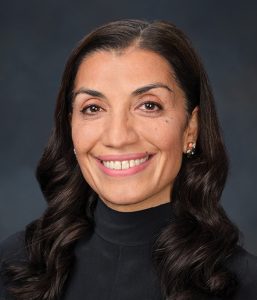
Shamila N. Chaudhary served in senior roles in the U.S. government for more than a decade, including as Director for Pakistan and Afghanistan on the National Security Council from 2010 to 2011. She also served in the U.S. Department of State’s policy planning staff as South Asia Advisor to Secretary of State Hillary Clinton and the late Ambassador Richard Holbrooke from 2009 to 2010. Since leaving public service in 2011, Ms. Chaudhary has assumed a variety of leadership roles in higher education, think tank, non-profit, and private sector, including at the political risk consultancy Eurasia Group, the American Pakistan Foundation, and the Atlantic Council. At Johns Hopkins University School of Advanced International Studies, she served as senior advisor to Dean Vali Nasr from 2013 to 2019. Ms. Chaudhary earned an MA in International Affairs from the American University’s School of International Service and a BA in English Literature and Women’s Studies from the University of Toledo.
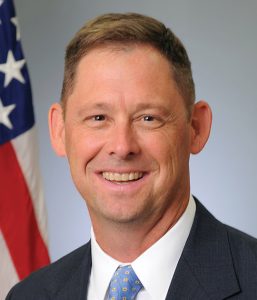
Colin F. Jackson serves as the Chair of the Strategic and Operational Research Department at the U.S. Naval War College. Previously he served as Deputy Assistant Secretary of Defense for Afghanistan, Pakistan, and Central Asia from 2017 to 2019. He also served as the senior Department of Defense representative to the U.S.–Taliban peace talks. From 2006 to 2017, he served at the Naval War College as a professor in the Strategy Department and later Director of the Advanced Strategist Program. Dr. Jackson also taught strategy and counterinsurgency at the Massachusetts Institute of Technology and at Columbia University. His career serving in the U.S. Army and U.S. Army Reserve included a deployment to Afghanistan in 2011 as Executive Officer for Policy Planning for the Deputy Chief of Staff, Operations U.S. Forces-Afghanistan and as a senior civilian advisor to Task Force Mountain Warrior. Before entering academia, he worked in private sector financial trading and power development. He holds degrees from MIT, University of Pennsylvania’s Wharton School, Johns Hopkins School of Advanced International Studies, and Princeton University. He is a recipient of both the Department of Defense Medal for Distinguished Public Service and the Bronze Star Medal.

Michael Allen served in the George W. Bush White House in a variety of national security policy and legislative roles, including Special Assistant to the President and Senior Director for Counter-proliferation Strategy on the National Security Council from June 2007 to January 2009. From 2011 to 2013, Mr. Allen served as the Majority Staff Director of the House Permanent Select Committee on Intelligence. Prior to joining the select committee, Mr. Allen was Director for the Bipartisan Policy Center’s successor to the 9/11 Commission, the National Security Preparedness Group, which was co-chaired by former Congressman Lee Hamilton and former Governor Tom Kean. Mr. Allen is managing director of Beacon Global Strategies, which advises clients on the intersection of business and national security. He received his LLM with distinction in International Law from the Georgetown University Law Center; his JD from the University of Alabama, cum laude; and his BA from Vanderbilt University
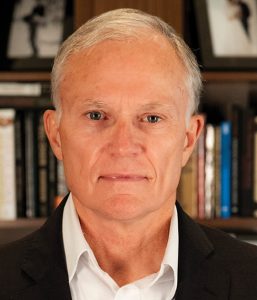
Lieutenant General Robert P. Ashley Jr., U.S. Army (retired), served in the U.S. Army for over 36 years and was the 21st Director of the Defense Intelligence Agency from 2017 to 2020. Previously, he served as the Army Deputy Chief of Staff, G-2, where he was a senior advisor to the Secretary of the Army and Army Chief of Staff for all aspects of intelligence, counterintelligence, and security. A career military intelligence officer, he commanded at the company, battalion, squadron, and brigade levels with six tours in Iraq and Afghanistan: as a squadron commander, brigade commander, and Deputy Chief of Staff for Intelligence (J-2). Other key assignments include Director of Intelligence, U.S. Joint Special Operations Command; Director of Intelligence, U.S. Central Command; Deputy Chief of Staff, Intelligence, International Security Assistance Force and Director of Intelligence, U.S. Forces-Afghanistan; and Commanding General, U.S. Army Intelligence Center of Excellence at Fort Huachuca, Arizona. He has a BA in Political Science from Appalachian State University, a master’s in Strategic Intelligence from the National Intelligence University, and a master’s in Strategic Studies from the U.S. Army War College.

Jeremy Bash served as Chief of Staff to the Director of the CIA (2009–2011) and Chief of Staff to the Secretary of Defense (2011–2013). From 2004 to 2009, he served on Capitol Hill, including as Chief Counsel of the House Permanent Select Committee on Intelligence. From August 2010 to May 2011, he was a member of the CIA’s senior management team overseeing the operation that killed Osama Bin Laden. Currently, Mr. Bash is a managing director at Beacon Global Strategies, serves as a member of the President’s Intelligence Advisory Board, and as a board member to the Truman Center for National Policy and the International Spy Museum. Mr. Bash is a recipient of the Department of Defense Distinguished Public Service Medal, the CIA Director’s Award, the Distinguished Intelligence Medal, and the Donovan Award from the National Clandestine Service. He graduated from Georgetown University, magna cum laude, and earned his law degree from Harvard Law School, where he was an editor of the Harvard Law Review.
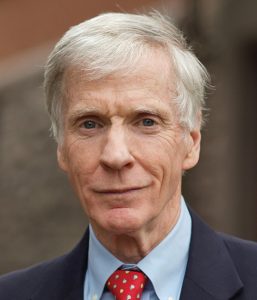
Former Ambassador Ryan Crocker was a career foreign service officer who served as a U.S. Ambassador to six countries: Afghanistan (2011–2012), Iraq (2007–2009), Pakistan (2004–2007), Syria (1998–2001), Kuwait (1994–1997), and Lebanon (1990–1993). He received the Presidential Medal of Freedom, the nation’s highest civilian award, in 2009. He currently is a nonresident senior fellow at the Carnegie Endowment for International Peace and was previously a diplomat in residence at Princeton University. Other recent awards include the inaugural Bancroft Award presented by the Naval Academy in 2016; the annual James Joyce Award bestowed by the University College, Dublin; and the West Point’s Thayer Award in 2020. He is an Honorary Marine.
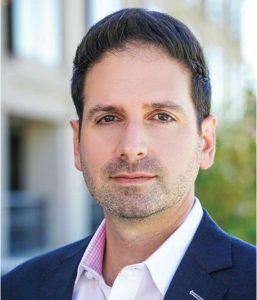
Jeffrey Dressler is a partner in SoftBank’s global government affairs office in Washington, D.C. Previously, he served as the National Security Advisor to Speakers of the House Paul Ryan and Kevin McCarthy. Prior to working with leadership in the U.S. House of Representatives, Mr. Dressler was a professional staff member on the House Foreign Affairs Committee responsible for terrorism, trade, and non-proliferation. Mr. Dressler began his career as an expert on Afghanistan and Pakistan at the Institute for the Study of War, in which capacity he served as a terrorism and counterinsurgency advisor to senior commanders in Afghanistan. Mr. Dressler has appeared on Fox News, CNN, MSNBC, and in leading publications as a subject matter expert on foreign policy and national security issues.
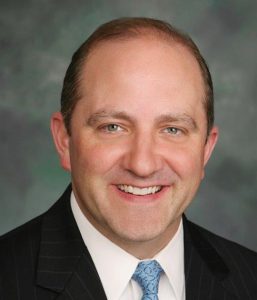
Daniel Fata, president of Fata Advisory, LLC, is a public policy expert, national security consultant, and strategic advisor focused on helping companies and organizations enhance their product and program offerings through the development of comprehensive government affairs strategies, risk assessments, strategic planning, and advocacy initiatives. For seven years, Mr. Fata served in various capacities at Lockheed Martin. Prior to joining Lockheed Martin, he spent six years as the vice president of The Cohen Group, a global strategic advisory firm. From 2005 to 2008, he served as the U.S. Deputy Assistant Secretary of Defense for European and NATO Policy. Mr. Fata graduated with honors from the University of Connecticut with a BA in Political Science. He earned his MA in International Relations from Boston University.
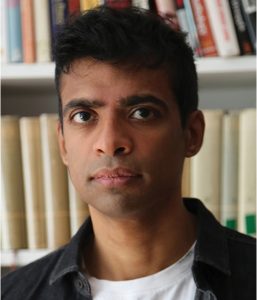
Dr. Anand Gopal is the author of No Good Men Among the Living: America, the Taliban, and the War Through Afghan Eyes (Metropolitan Books, 2014), a finalist for the Pulitzer Prize and the National Book Award and winner of the Ridenhour Prize for Journalism. As an award-winning journalist, he has been published in The New Yorker, The New York Times Magazine, The Atlantic, and Harper’s Magazine. He has extensively covered conflict in Afghanistan and Syria, including embedding with the Taliban, which led to his writing No Good Men Among the Living. He received his PhD from Columbia University and is an assistant research professor at the Center for the Study of Religion and Conflict.
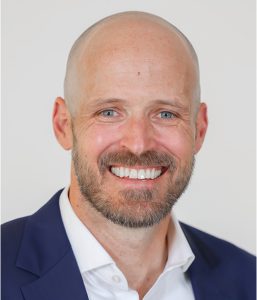
Luke Hartig is a fellow at New America’s International Security program and the President of Gravity Research. Previously, he served as Senior Director for Counterterrorism at the National Security Council. Mr. Hartig has also served in various national security positions within the Office of the Secretary of Defense, State Department, Office of Management and Budget, Government Accountability Office, and U.S. Forces-Afghanistan. He is an Executive Editor at Just Security and a member of the Advisory Boards of Hostage US and the James W. Foley Legacy Foundation. He began his career as a Peace Corps Volunteer in Guatemala. Mr. Hartig holds an MPP from the Harvard Kennedy School and a BA in International Relations from Boston University.
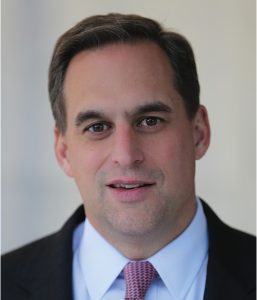
Dr. Seth G. Jones is Senior Vice President, Harold Brown Chair, and director of the International Security Program at the Center for Strategic and International Studies. He also teaches at Johns Hopkins University’s School of Advanced International Studies and the U.S. Naval Postgraduate School’s Center for Homeland Defense and Security. He previously was director of the International Security and Defense Policy Center at RAND Corporation and served in several positions in U.S. Special Operations Command and the Office of the Secretary of Defense, including plans officer and advisor to the commanding general, U.S. Special Operations Forces, in Afghanistan. He served on a 2014 congressional panel that reviewed the FBI’s implementation of the 9/11 Commission’s counterterrorism recommendations. Among the books he’s authored is In the Graveyard of Empires: America’s War in Afghanistan (W.W. Norton, 2010). A graduate of Bowdoin College, Dr. Jones received his MA and PhD from the University of Chicago.
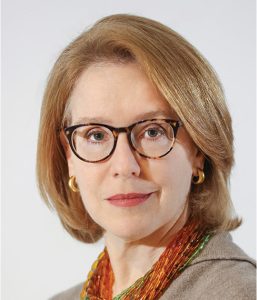
Laurel E. Miller is President and CEO of the Asia Foundation. Her previous nonprofit work includes Director of the Asia Program for the International Crisis Group and senior foreign policy expert for RAND Corporation on an array of topics including peace processes, institution building, economic and security assistance, and governance. At the State Department, Ms. Miller was Deputy and Acting Special Representative for Afghanistan and Pakistan and also served as Senior Advisor to the Assistant Secretary of State for European Affairs, Senior Advisor to the U.S. Special Envoy for the Balkans, and Deputy to the Ambassador-at-Large for War Crimes Issues. She was directly involved in peace negotiations in Bosnia, Kosovo, and Macedonia. In addition, Ms. Miller served as Director for Western Hemisphere Affairs at the National Security Council. She is a graduate of Princeton University’s School of Public and International Affairs and the University of Chicago Law School.
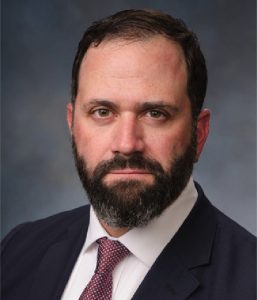
Lieutenant Colonel Chris Molino, U.S. Army (retired), served in the U.S. Army for 20 years. His career included operational and senior staff assignments focused on counterterrorism and U.S. policymaking, including roles in the Office of the Secretary of Defense, the Joint Chiefs of Staff, Joint Special Operations Command, and Army Special Operations Command. He also served as the Director for Counterterrorism on the National Security Council from 2017 to 2019. In addition to conventional assignments in the Infantry, LTC Molino served in Army and Joint Special Operations commands at every rank from second lieutenant to lieutenant colonel with combat experience in Iraq, Syria, and Afghanistan. He is the Chief Operating Officer of consulting firm Gossamer Insights and Director of Defense Programs for Foundation Stack AI. He also is an adjunct professor at Georgetown University and Missouri State University. LTC Molino received BAs in Government and History from William & Mary and an MPM from Georgetown University.

Dr. Dipali Mukhopadhyay, author of Warlords, Strongman Governors and the State in Afghanistan (Cambridge University Press, 2014), is a senior expert on the Afghanistan peace process for the U.S. Institute of Peace. She also is an associate professor at the Johns Hopkins School of Advanced International Studies and has had similar positions at the University of Minnesota and Columbia University. Her research focus is the relationships among political violence, state building, and governance during and after war with a geographical focus on Afghanistan and Syria. Dr. Mukhopadhyay is vice president of the American Institute of Afghan Studies and was a term member of the Council on Foreign Relations. In 2016, she was a visiting scholar at New York University’s Center on International Cooperation. She earned her doctorate from The Fletcher School at Tufts University and her bachelor’s in political science from Yale University. She held a postdoctoral fellowship at Princeton University.
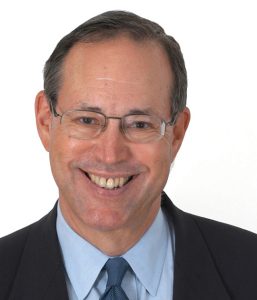
Governor Robert “Bob” Taft served as governor of Ohio for two terms from 1999 to 2007. During his time in office, Governor Taft championed the state’s high-technology sector and worked to improve Ohio’s education system. Programs he implemented continue to produce rewards for the Buckeye State long after he left office, such as his 12-year, $10 billion billion school construction and renovation agenda and his Ohio Reads initiative that has delivered more than 45,000 volunteers to help elementary school children achieve grade level reading standards by the end of the fourth grade. Before his election as governor, he served as a member of Ohio’s House of Representatives, as Commissioner of Hamilton County, and as Secretary of State of Ohio. Governor Taft served as Assistant Program Officer with the USAID Mission in South Vietnam (1967–1969) and as a Peace Corps volunteer in Tanzania (1963–1965). Currently, he is a Distinguished Research Associate at the University of Dayton. Governor Taft’s father and grandfather both served in the U.S. Senate, and his great-grandfather, William Howard Taft, was the 27th U.S. President and served as Chief Justice of the U.S. Supreme Court.
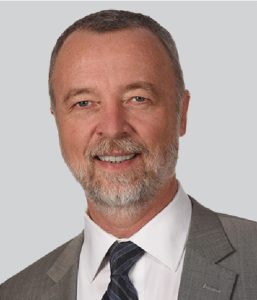
Dr. Andrew Wilder is Vice President of Asia Programs at the U.S. Institute for Peace (USIP). He has worked there since 2010, including from 2010 to 2013 as director of Afghanistan and Pakistan programs. Prior to his USIP service, Dr. Wilder was research director for politics and policy at the Feinstein International Center at Tufts University. Previously, he founded and directed Afghanistan’s first independent research institution, the Kabul-based Afghanistan Research and Evaluation Unit, following more than 10 years managing humanitarian and development programs in Pakistan and Afghanistan. He served as country director of Save the Children’s Afghanistan and Pakistan programs from 1996 to 2001. Dr. Wilder has conducted research on topics related to state-building, electoral politics, and development and stabilization efforts in Pakistan and Afghanistan. He holds a BS in foreign service from Georgetown University, and a master’s degree and PhD from the Fletcher School of Law and Diplomacy at Tufts University.
